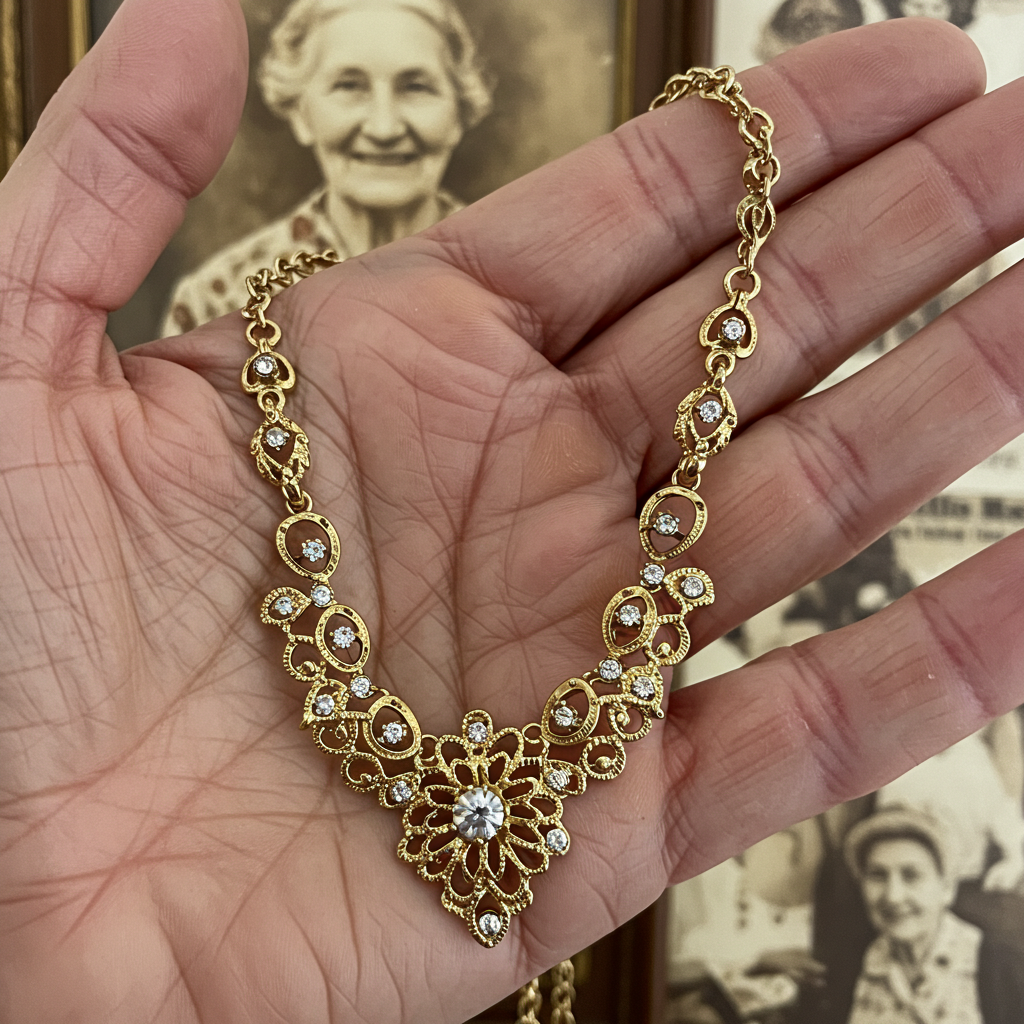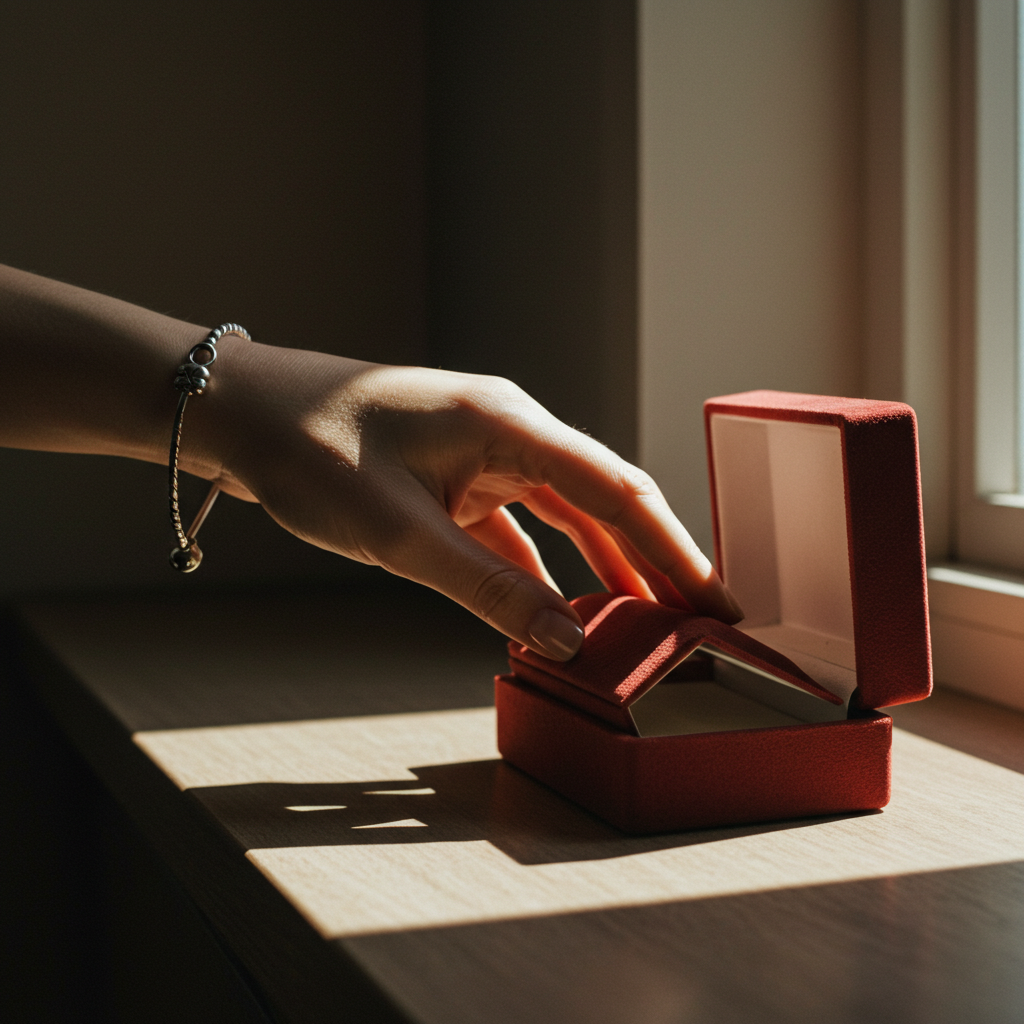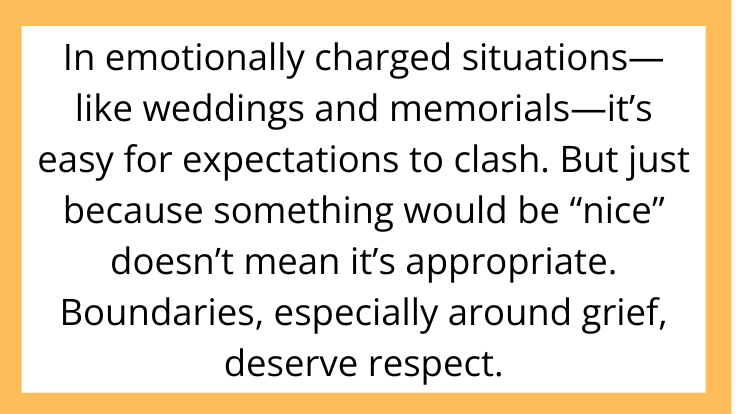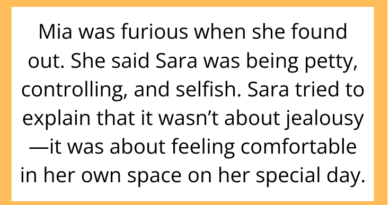AITAH for Not Letting My Brother’s New Wife Have My Deceased Mom’s Jewelry?
Losing a parent is never easy, and the things they leave behind often carry deep emotional significance. But what happens when a family member claims a sentimental item that doesn’t belong to them? That was the situation one Reddit user faced when their brother’s new wife requested to wear their late mother’s jewelry for her wedding.
In this post, we’ll explore this real-life AITAH scenario involving grief, family expectations, personal boundaries, and emotional inheritance. Was the refusal selfish, or was it a necessary act of protection?
The Scenario: A Wedding, a Widow’s Keepsakes, and a Big Ask

The original poster (OP) shared that after their mother passed, they inherited a collection of her personal jewelry. Among the items were heirloom pieces—a necklace, rings, and earrings—that held enormous sentimental value.
OP’s brother was getting married, and his fiancée asked to wear one of their mother’s necklaces “as a tribute” during the ceremony. OP declined, explaining that they weren’t comfortable lending it out. The fiancée was offended and called OP selfish, while the brother accused OP of creating unnecessary drama during “a happy time.”
Feeling guilt-tripped and painted as the villain, OP turned to r/AITAH to ask: Were they in the wrong for protecting something so personal?
Understanding Sentimental Value: It’s Not Just About the Object

People often misunderstand the emotional weight behind inherited items. It’s not just jewelry—it’s a connection to someone who’s gone. Here’s why OP’s reaction is valid:
-
Grief is personal: What brings comfort to one person might feel invasive to another.
-
Heirlooms carry memory: The jewelry isn’t just decorative—it symbolizes a bond, a history, and a loss.
-
Trust plays a role: Lending something irreplaceable to someone you don’t know well is a big ask.
This wasn’t about being unkind—it was about protecting something sacred.
Why the Request Felt Inappropriate to Some

While some Redditors sympathized with the bride’s intentions, many pointed out key concerns:
-
Timing: Making such a request during wedding prep can pressure the other person into saying yes.
-
Entitlement: Being new to the family doesn’t guarantee access to private or sentimental belongings.
-
Boundary crossing: Respecting a “no” is just as important as making a polite ask.
When dealing with grief and remembrance, sensitivity matters more than ceremony.
How to Handle Similar Situations

If you’re ever asked to share something you’re emotionally attached to—and you’re uncomfortable—here are a few respectful ways to respond:
-
Be honest and kind: “I know this means a lot to you, but it’s very personal to me, and I’m not comfortable lending it out.”
-
Offer an alternative: Maybe share a framed photo of your mom at the ceremony or lend a different piece with less emotional weight.
-
Stick to your boundary: Guilt-tripping shouldn’t change your decision. A boundary that wavers under pressure isn’t a boundary—it’s a negotiation.
What Reddit Had to Say

This post stirred strong reactions:
-
Majority ruled OP was NTA (Not the A**hole).
-
Many users emphasized the importance of honoring grief and respecting boundaries.
-
A few believed OP could’ve compromised, but agreed that no one should be forced into sharing sentimental items.
The consensus? Emotional inheritance is personal. You don’t owe it to anyone.
Final Thoughts: Sentimental Doesn’t Mean Shareable

In emotionally charged situations—like weddings and memorials—it’s easy for expectations to clash. But just because something would be “nice” doesn’t mean it’s appropriate. Boundaries, especially around grief, deserve respect.
Refusing to lend your mother’s jewelry for someone else’s big day doesn’t make you selfish—it means you’re honoring your connection and your comfort. In a time when everyone wants a piece of something, sometimes the kindest thing you can do for yourself is say “no.”



